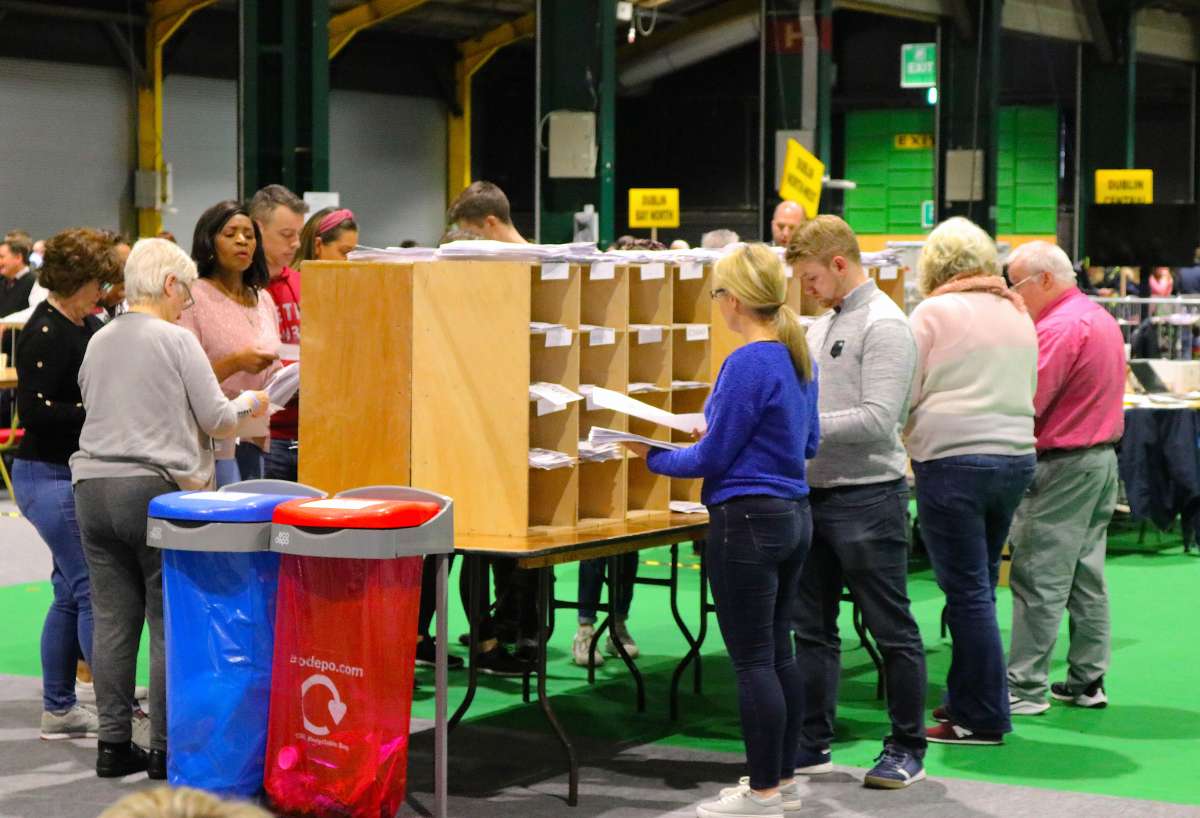The center-left opposition parties Labour and the Social Democrats are seen by Fine Gael and Fianna Fail as the most likely junior coalition parties..reports Asian Lite News
The incumbent center-right parties Fianna Fail and Fine Gael looked set to retain power in Ireland as vote counting in the European Union member’s general election resumed on Sunday.
With half the seats of the new 174-seat lower chamber of parliament decided since Friday’s vote, the two parties were ahead of the main opposition party, the left-wing nationalist Sinn Fein.
Fianna Fail, led by the experienced Micheal Martin, 64, won the largest vote share with 22 percent. Fine Gael, whose leader Simon Harris, 38, is the outgoing prime minister (taoiseach), was in second place with 21 percent, while Sinn Fein was in third (19 percent).
To form a majority, a party or coalition requires at least 88 seats. At the halfway stage Fianna Fail had secured 23 seats, Fine Gael 22, and Sinn Fein 21. Both center-right parties have repeatedly ruled out entering a coalition with Sinn Fein.
The center-left opposition parties Labour and the Social Democrats are seen by Fine Gael and Fianna Fail as the most likely junior coalition parties, according to media reports. The Green Party was the third member of the previous coalition but its support collapsed nationwide, with all but one seat likely to be lost.
At the last general election in 2020, the pro-Irish unity Sinn Fein — the former political wing of the paramilitary Irish Republican Army — was the most popular party but could not find willing coalition partners. That led to weeks of horse-trading, ending up with Fine Gael, which has been in power since 2011, agreeing a deal with Fianna Fail.
During the last parliamentary term, the role of prime minister rotated between the Fianna Fail and Fine Gael leaders. The final seat numbers, which will not be confirmed until early next week, will determine whether Harris returns as taoiseach or Martin takes the role under a similar rotation arrangement.
The new parliament is due to sit for the first time on December 18, but with coalition talks likely to drag on a new government might not be formed until the new year. Martin told reporters in Cork that there was “very little point” in discussing government formation until seats were finalized.
“I think there’s capacity to get on,” he said, when asked if there is trust between Fianna Fail and Fine Gael. Paschal Donohoe, a top Fine Gael minister in the outgoing cabinet, said there was “a chance” a government might still be formed this year.
“But we do have a lot of work to do,” Donohoe told reporters in Dublin after his own re-election to parliament. “Overall the center has held up in Irish politics,” he said.
The three-week campaign, launched after Harris called a snap election on November 8, was dominated by rancour over housing supply and cost-of-living crises, health, public spending and the economy. “It’s all been an anti-climax as far as I’m concerned,” Michael O’Kane, a 76-year-old semi-retired engineer, said in Dublin.
“It’s more of the same. The two parties who dominated the government last time are back again… but with the (fresh coalition partners) it might be a little bit less stable,” he said.
ALSO READ: Starmer welcomes ceasefire deal

Leave a Reply